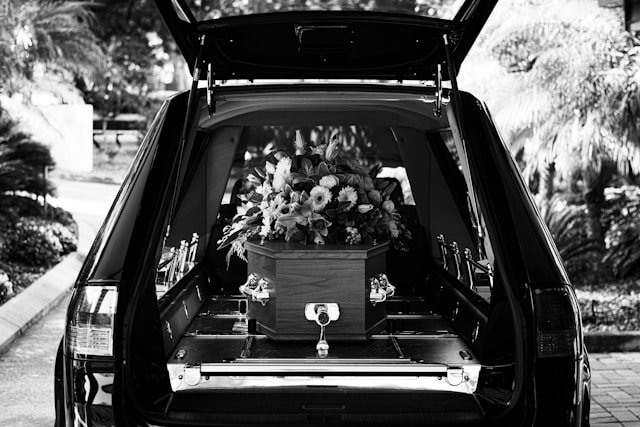Funerals have long been known as a time of sorrow and remembering times with loved ones past. A time of grieving. But while true that funerals are a time of sad tidings, for Uganda, the perception is rather mixed. Funerals are a communal activity, with feasting, music and reunions.
Yes, there are tears. But there’s also laughter, and it’s not unusual to hear bursts of joy around the compound even on the day someone is laid to rest. In Uganda, a funeral isn’t just about mourning a loss, it’s about celebrating a life, reconnecting with family, and finding strength in community. And while it may sound odd to outsiders, funerals here often feel like reunions that just happen to have a coffin at the center.
The Whole Village Shows Up
In most Ugandan communities, the news of a death travels fast. And with that comes the expected flood of visitors, from neighbors to long-lost cousins, childhood friends, in-laws, even workmates from decades ago. It’s not uncommon to see people you haven’t spoken to in ten years hugging like they met just yesterday. The compound swells with tents, jerrycans of water, foodstuffs, and the buzz of countless voices catching up and a big bon fire in the middle of the compound.
In fact, for many Ugandans, a funeral is the one occasion where everyone finally shows up. Long-lost cousins, childhood friends, and even neighbors who moved away years ago find their way back home.
While the grieving family is comforted by this presence, there’s a quiet sense of social obligation too: you have to show up. Skipping a funeral, especially for a close family member or friend, can earn you raised eyebrows or worse—family drama.
The All-Night Vigil
Forget sleeping. Once the body arrives at home, the lumbe kicks off. This vigil is not just about sitting around and sobbing quietly. People sing, pray, and sometimes even dance through the night around a central fire. Stories about the deceased are shared—some serious, others comically exaggerated for effect. It’s storytelling therapy, in many ways.
Aunts will share how the person never quite knew how to slaughter a chicken right, uncles will debate who was better at school debates back in the day, and children will listen in, learning not just about the person who passed, but the family history they’re now part of.
Feasting Like It’s Christmas
Food is non-negotiable. Whether the family is well-off or barely managing, there will be food—and lots of it. Matooke, rice, meat, posho, beans… You name it. Cows are slaughtered. Fires burn well into the night with giant saucepans bubbling away. Feeding hundreds is no easy task, but somehow, the community pulls together, and it happens.
Eating together here isn’t just about satisfying hunger; it’s about comfort. It creates an atmosphere of normalcy. You may be sad, but with a full plate and people to share it with, the burden somehow feels lighter.
Traditional Drums & DJ Mixes
Somewhere between cultural preservation and modernization, Ugandan funerals have started to include something else—DJs. Yes, seriously. Especially in urban areas, it’s now common to hear loudspeakers playing everything from gospel songs to Afrobeat mixes. And no, it’s not seen as disrespectful. Music has always had a place in Ugandan mourning rituals. Whether it’s the Ajore drums of the Jopadhola or the church choir hymns, sound carries memory.
In some funerals, you’ll even find people dancing. Tentatively at first, then with full emotion. It’s cathartic. Mourning doesn’t always have to be quiet. This, however, has many questioning the erosion of culture where traditional instruments and songs were played and sung instead.
“I listen to what is being played, and I watch how people struggle to mourn because the radio doesn’t evoke grief. … People dance their own kind of dance, and it seems more like a leisure funeral!” – In Uganda, DJs Overtake Traditional Musicians At Funerals
In Uganda, a rich tradition fades as DJs replace funeral musicians
Fashion and Selfies
Believe it or not, some Ugandan funerals feel like a low-key fashion show. Coordinated gomesi for women, crisp kanzus for the men, and youth dressed in their cleanest Sunday fits. Some even go as far as posing for pictures. The rise of smartphones and social media has given birth to a bizarre but growing trend: selfies at funerals. Whether you find it distasteful or not, it reflects how the younger generation interprets tradition.
The mix of mourning and memory-making continues to change, and while grandma may side-eye your phone camera, it’s become part of the new normal.
For many Ugandans, funerals are the few remaining moments where the entire clan comes together, no excuses. Life is busy. People relocate. But a funeral draws everyone home. It’s where disputes are settled, bonds rekindled, and new babies introduced to the elders. It may be a sad reason to gather, but once together, it feels almost sacred.
It’s not that Ugandans don’t mourn. It’s that they mourn together. And in doing so, they turn funerals into reunions.




